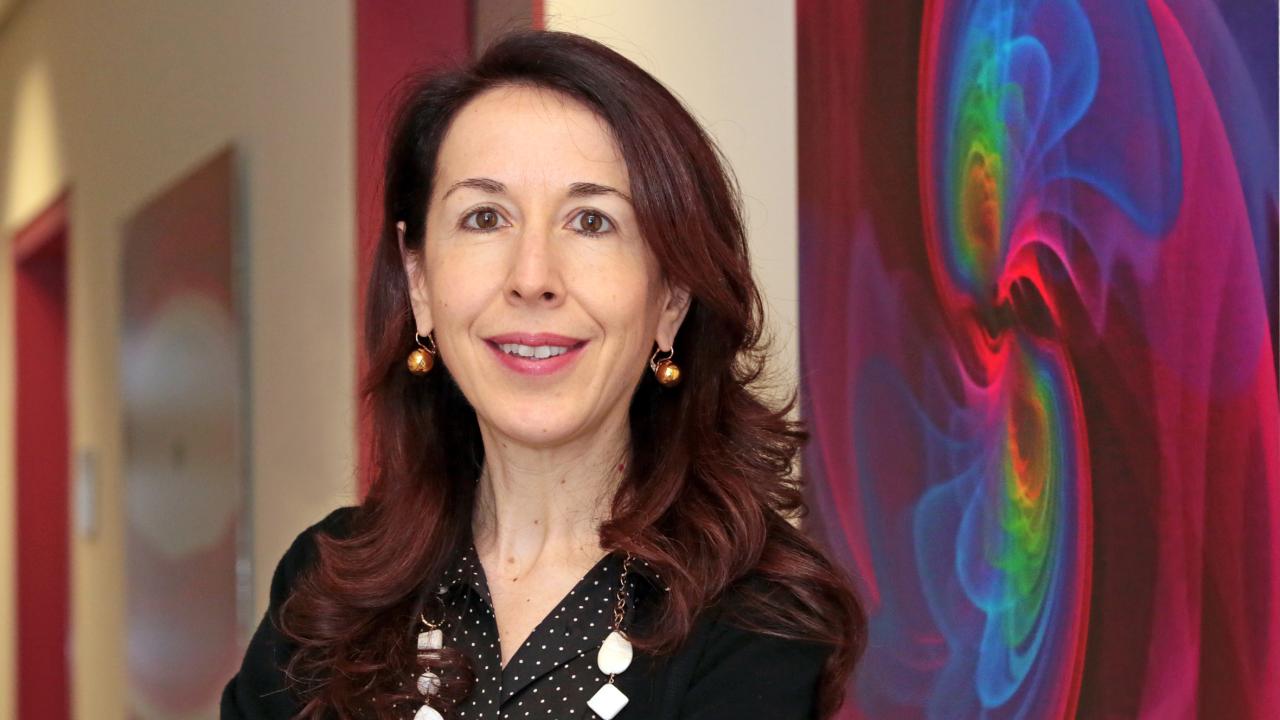
ICTP is pleased to announce that its 2022 Salam Distinguished Lectures Series will feature physicist Alessandra Buonanno, of the Max Planck Institute for Gravitational Physics, Germany, and one of ICTP's 2021 Dirac Medallists. Professor Buonanno will deliver three lectures on 27, 28 and 31 January on gravitational waves and the fundamental observations carried out with the LIGO and Virgo detectors.
ICTP's Salam Distinguished Lecture Series is an annual presentation of talks by renowned, active scientists. The aim is to showcase important research developments as well as provide a visionary forward view. The lecture series is supported by the Kuwait Foundation for the Advancement of Sciences (KFAS).
There will be three talks as follows, all starting at 4pm CET:
- Thursday 27 January 2022: Lecture 1 - "What Gravitational Waves tell us about the Universe"
- Friday 28 January 2022: Lecture 2 - "The Making of High-Precision Gravitational Waves"
- Monday 31 January 2022: Lecture 3 - "Gravitational Waves as Probes of Gravity and Fundamental Physics"
The Salam Distinguished Lecture Series will be a Zoom event, which you can register for here. It will also be livestreamed on ICTP's YouTube channel. Find more information here.
In 2015 the LIGO detectors observed, for the first time, a gravitational wave passing through the Earth produced by the collision of two black holes. Such an event was a milestone for astrophysics, and it provided a remarkable confirmation of the general theory of relativity by Albert Einstein. Since then, as many as ninety gravitational waves have been observed by the LIGO and Virgo experiments, including signals from neutron stars and black holes, which have ushered the development of gravitational-wave observations as an astronomical tool.
In the lecture series, Buonanno will start by reviewing the main characteristics of gravitational waves - the new astronomical messengers produced in the dark and deep universe; provide an overview of the gravitational-wave sources; and highlight the main astrophysical results from the observations of the LIGO and Virgo detectors. Thus, she will review the main analytical methods to solve Einstein's equations, and discuss the synergetic approach that successfully combines analytical and numerical relativity to produce highly accurate waveform models. Finally, in the third lecture, she will discuss the most compelling and challenging findings from the LIGO-Virgo observations regarding gravity and fundamental physics. Buonanno will also discuss the bright future of gravitational-wave astronomy with the opening of new frequency bands on the ground (Einstein-Telescope/Cosmic Explorer) and in space (LISA) in the next decade.
Alessandra Buonanno studied theoretical physics in Pisa, and held faculty positions in Paris and at the University of Maryland, where she became full professor in 2010. She is a Principal Investigator of the LIGO Scientific Collaboration. For her contributions to LIGO and Virgo discoveries, she was awarded several prizes, including the 2018 Gottfried Wilhelm Leibniz prize – the most prestigious research prize in Germany, the 2021 Galileo Galilei Medal, the 2021 Dirac Medal and the 2021 Balzan Prize. In 2021, she was elected as a member of the German National Academy of Sciences Leopoldina, of the US National Academy of Sciences, and of the Berlin-Brandenburg Academy of Sciences and Humanities. Buonanno is a Fellow of the International Society on General Relativity and Gravitation, and of the American Physical Society. She holds a research professorship at the University of Maryland, and honorary professorships at the Humboldt University in Berlin and the University of Potsdam.
















